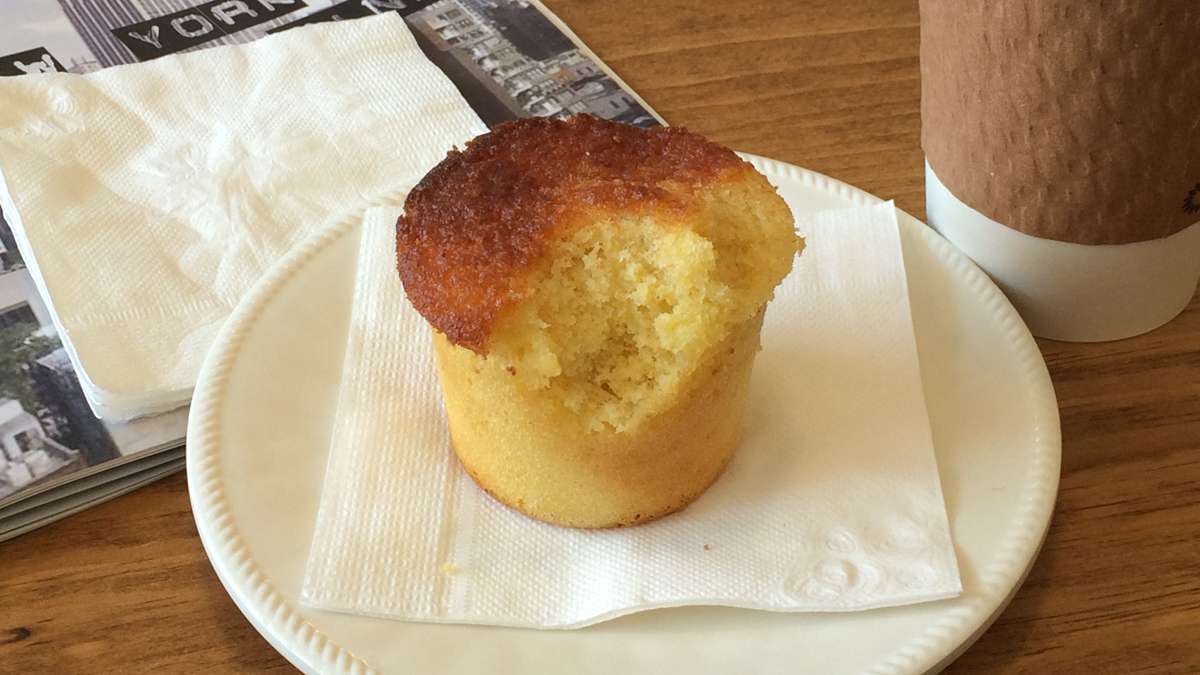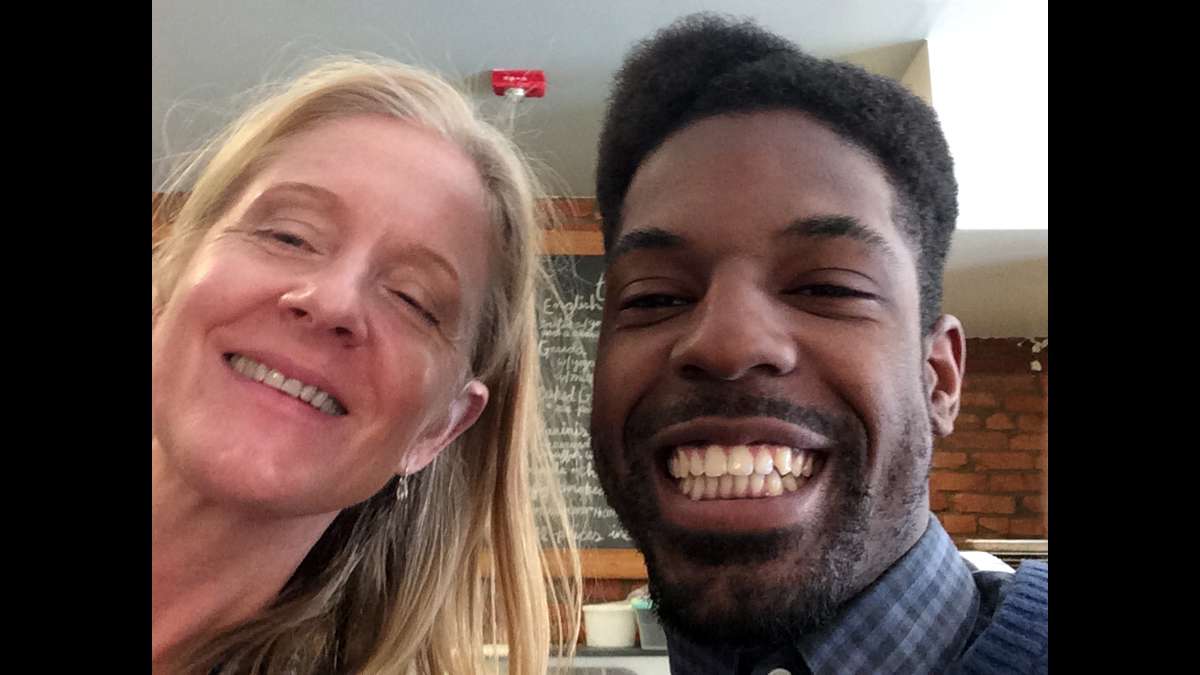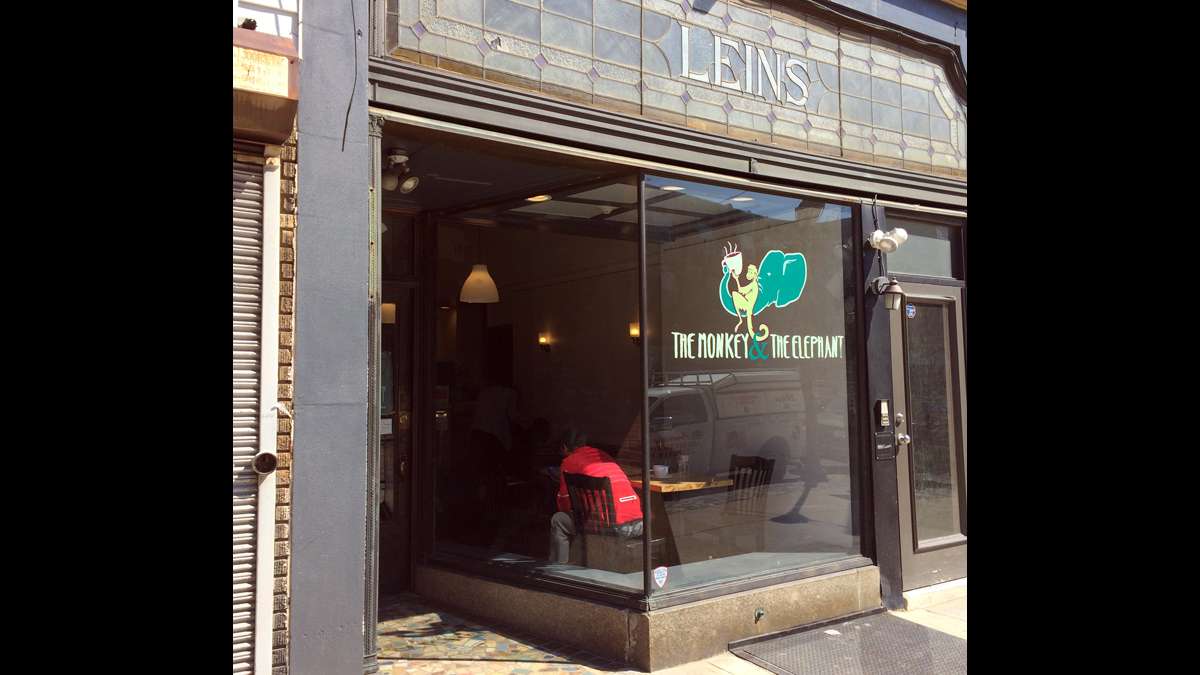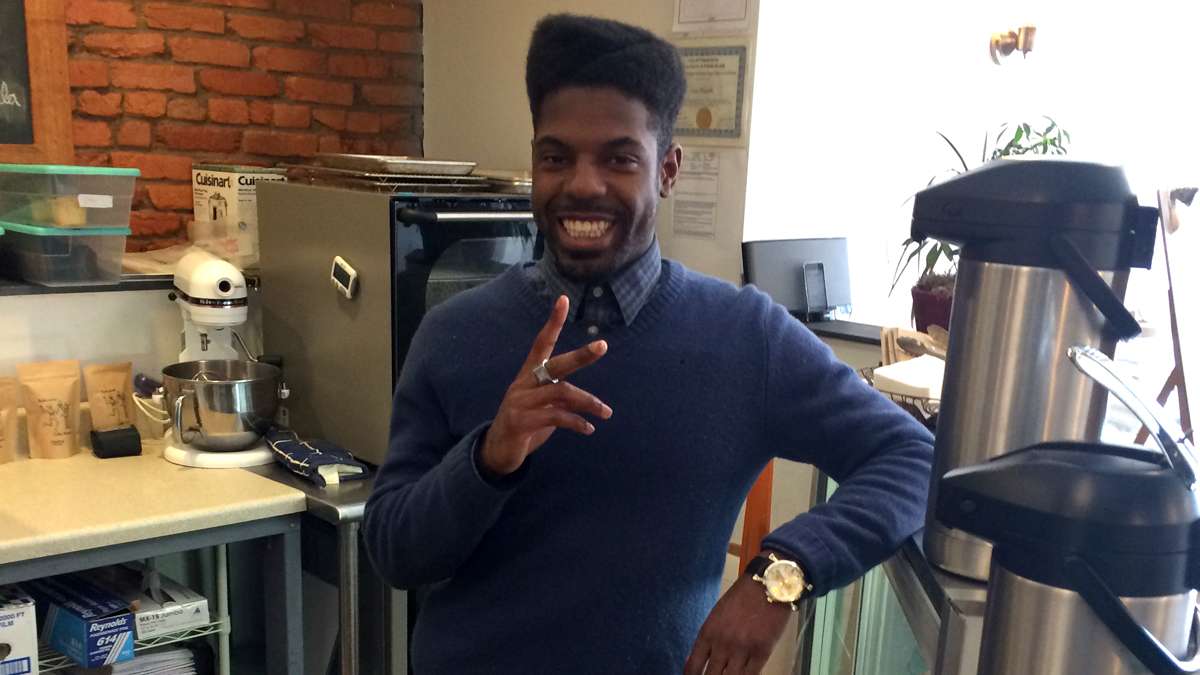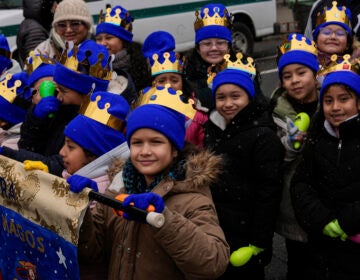Former foster kids get a foothold in the world, one latté at a time
One in three young Philadelphians who age out of foster care at 18 will end up living below the poverty line. Forty percent will experience homelessness. One in four will end up incarcerated within the first two years.
With stats like that staring him in the face, it’s no wonder Joseph Hill-Coles, 21, sought creative support in the wider community.
He found it at a café in the 2800 block of West Girard Avenue, The Monkey and the Elephant, which runs a pilot training and employment program for young people who have aged out of foster care but who still lack the support they need to avoid the cycle of poverty.
On the day I visited the café — a gorgeous sunny day, with the hint of early spring that I was craving — Hill-Coles was on duty with his supervisor, Maryan Captan, as was a ton of great music.
“It’s great music here,” said Hill-Coles. “Today alone, we’ve listened to Macy Grey, Amy Winehouse, Maroon Five, Ella, Ray Charles, Sam Cook. The music is motivational … Perks you up like a cup of coffee.”
Community, support
The neighborhood gathers up everything from dilapidated, shuttered old record stores (like, from when vinyl was the only option), to discount shops, to new construction — and cozy coffee shops. And M&E itself embodies this mix of influences. Founder Lisa Miccolis created the business to offer community and to give young adults a firm foothold in the world.
Inside the shop, I found a cozy, humming mix of folks talking on cell phones, working on computers, wheeling in babies. The space had been renovated (by the young adults in the program in conjunction with Youth Build Charter School) in a way that retained the curved ceiling, ceiling edging, and open ductwork (always a plus).
After I got settled in, Hill-Coles joined me to chat over green tea. He was happy but tired. A student at Philadelphia Community College, he’d been up all night studying. And that’s on top of working as a barista at M&E and as a post-secondary mentor at Youth Build — all of which draws directly on his own recent experience of taking his life new places.
Sometimes the work we do is especially germane to our lives because it comes straight out of our own deep and immediate challenges. Struggling and learning in the face of adversity can simultaneously become a source of teaching and of giving to others, even while we’re still in the midst of the struggle.
But first things first. What’s his favorite drink?
“To make?” he says, laughing. “Latte. But to drink? Anything Ethiopian — drip or pour-over — it’s more flavorful.”
‘I’m luckier than others’
As one of the first program employees, he’d applied for the job after graduating from the citywide program PowerCorp and working briefly at a CVS Distribution center.
“I’m luckier than others,” says Hill-Coles, because he didn’t directly age out of foster care. “I was adopted, so that was my way out of the foster-care system. But then I had trouble dealing with emotional trauma. I’ve got a friend who aged out of the system. It’s hard for him. It’s hard to know where to turn.
“I came into the [M&E program] because I’d found myself homeless. I had troubles at home, and I couldn’t stay there,” he remembers. “There was nowhere to go. But looking back, I wouldn’t change anything, because I learned so much. I started from the bottom up to get to where I am now, to the point where I’m able to reach back to others.”
Hill-Coles had only a few years in foster care and with an adoptive family, but it felt to him like a long process. “I was in a couple of [DHS] programs before I got adopted. I had therapists, but they were switching every week. They’d be in and out. So when I did get adopted, I was still dealing with a lot of things in a short amount of time, still dealing with childhood issues even as an adult. But those things look different when you’re an adult.”
He says he was put out on the street when he as 19. “But it ended up motivating me,” he says. “I was angry. It turned to sadness. Then it became motivation: ‘I need to change things. What will I do?’ I take it day by day, step by step.”
The Monkey and the Elephant itself struggled to find a stable home. The café had a couple of pop-up shops earlier in 2014, but in November, Miccolis got the lease to the current quarters. The store was renovated for a February opening with coffee, tea, and four kinds of muffins. And in March they began serving a full menu of drinks, lunch paninis, and baked goods from their own kitchen.
Hill-Coles especially appreciates working there, because it’s a way to help other foster youth. It’s something that a man who’s just come through that experience doesn’t often get a chance to do.
“You have to search for [opportunities like that],” he says. “When it came, it made me feel special. And there’s a program aspect to the job. We’re engaged in community. They teach us money management, time management, different things. As well as coffee.”
A jar just beside my seat contained notes left by patrons offering feedback. One of the best in the bunch? “This place plays the perfect music for this neighborhood — blues, soul, and Motown.”
Indeed. Sadness, soul, and motivation.
WHYY is your source for fact-based, in-depth journalism and information. As a nonprofit organization, we rely on financial support from readers like you. Please give today.


